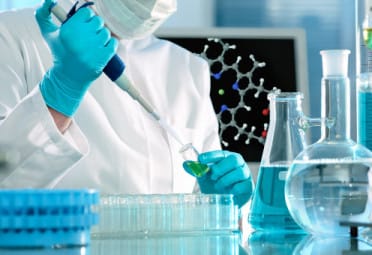In a joint research project with TU Delft and the LUMC, internist-oncologist Stefan Sleijfer is looking for a medicine to prevent cancer metastases. New to the research: they search a library for substances that can and are already used in daily practice.
Patients taking statins for high cholesterol are probably less likely to develop certain cancers. And there are even more indications that medicines for certain conditions can also work against cancer. Who knows what other medicines are in circulation that can help against the number 1 cause of death in the Netherlands.
Scientists from TU Delft, LUMC and Erasmus MC are looking for this in a joint research project. For this they use a library in the LUMC where all kinds of substances are stored. 5,685 different fabrics to be exact.
Liquid biopsies
Internist-oncologist Prof. Stefan Sleijfer explains how the team will work. ‘Normally, in the first phase of similar research, cancer cell lines are tested. These cell lines are sometimes 30 or 40 years old. Because over the years the cell lines have continued to be cultured, they no longer resemble the original cancer cells at all.’ Sleijfer’s research team therefore goes liquid biopsies use.
At a liquid biopsy a blood sample is taken from the patient. With a method developed by TU Delft, electrical currents are sent through the blood sample. Because circulating tumor cells in the blood react differently than the red and white blood cells, they can identify the cancer cells and extract them from the blood sample. In this way the scientists get their hands on tumor cells that are probably much more representative of cancer cells in patients than cancer cell lines.
Matrix
The tumor cells are then grown in a matrix, after which the different substances from the library are tested on it. The researchers are looking at which substances the tumor cell loses the ability to grow in the matrix. These substances could therefore limit the potential of cells to metastasize.
After this, promising substances can be tested quickly and effectively in humans. ‘We already know that the substances in this library are safe and what dosage we should use, which makes the ultimate clinical application a lot easier,’ says Sleijfer.
Team science
The researchers will receive 750,000 euros from the ZonMW program for the research Open Competition . The aim of this program was to stimulate collaboration between different research groups. Sleijfer and Erasmus MC Prof. John Martens are therefore working together with Prof. Peter ten Dijke of the LUMC and Dr. Pouyan Boukany of the TU Delft.
Source: ErasmusMC
–


